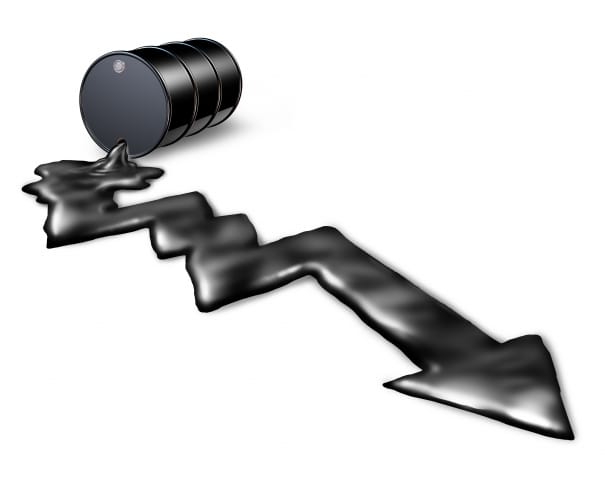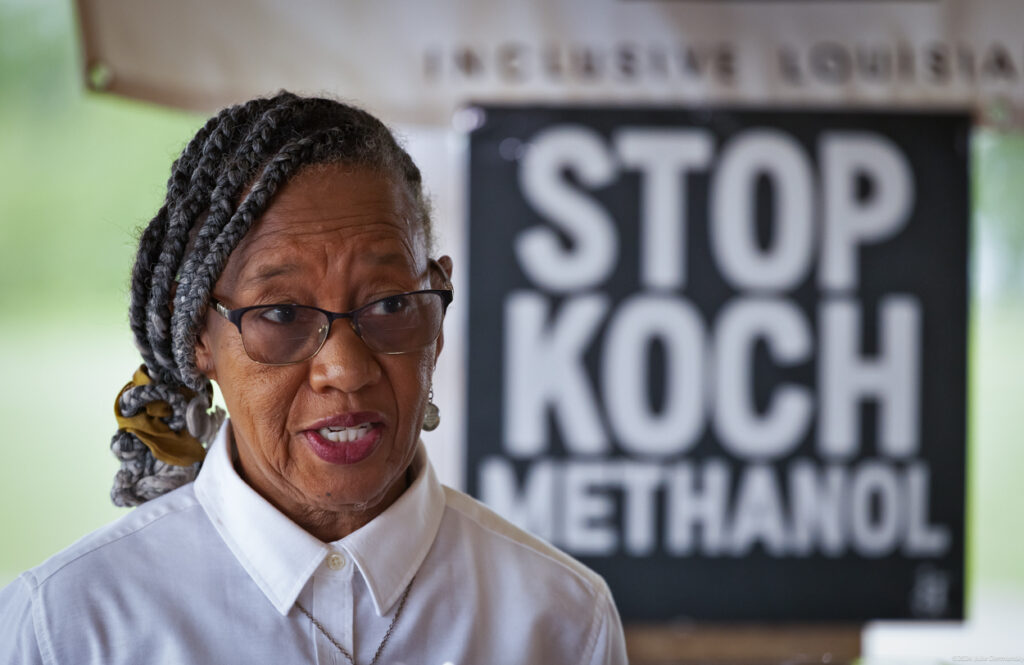If the major oil producers see an opportunity to potentially produce an extra 3 million barrels per day of oil in the United States, they aren’t going to let it pass. To put that amount in perspective, in the past six months the highest daily total imported from Saudi Arabia, was under 1.5 million barrels per day.
However, the oil companies can only find markets for this additional production and profit if the U.S. ban on exporting crude oil is lifted. And while logic would argue that pushing to increase the amount of oil being produced at a time when the oil price is crashing due to global oversupply of crude is an odd strategy, the oil companies are doing just that.
At the Columbia University Energy Symposium on November 21st, one of the day’s events was a “Fireside Chat” about ending the crude oil export ban featuring moderator Robert McNally, president of energy consultancy The Rapidan Group, and Marianne Kah, chief economist for ConocoPhillips.
Early in the conversation, McNally asked Kah, “In the grand scheme of things with all of the energy challenges we have, how important is this issue?”
“I think it is particularly urgent today with the decline in the global crude price,” Kah responded. Later in the talk she repeated this message stating, “I would say the current circumstances increase the urgency of getting rid of this ban, it’s not the opposite.”
So why does the top economist at ConocoPhillips believe this is urgent? And what does she claim this will accomplish?
Helping The US Consumer
The oil companies and their PR machine, which includes consultants like Daniel Yergin of IHS, politicians like Senator Lisa Murkowski (R-AK) , the General Accounting Office (GAO) and former Obama administration officials like Larry Summers, all want you to believe one important fact when it comes to their efforts to lift the crude oil export ban.
They are just trying to help you, the American consumer, by lowering gas prices. Really, this is all about their altruistic nature and how much they care about you. Kah made this claim multiple times in the presentation and at one point stated, “The first group to benefit is really the American consumer.”
What Kah and other oil promoters are pushing is the idea that getting rid of the crude export ban will put a lot more U.S. oil on the global market which should lower global oil prices. In turn, this should lower U.S. gas prices, the theory goes.
They know they have to push this idea because, as McNally repeatedly stated, politicians are scared of anything that might potentially raise gas prices. So the politicians need cover, and the industry PR push is working to provide that cover by saying this is all about lowering gas prices for Americans.
And there certainly is the potential that lifting the crude export ban could initially result in lower U.S. gas prices. However, the GAO report that Kah cited also mentions that it could lead to higher gas prices in the Northeastern U.S. due to refinery issues.
Kah and McNally did not mention this and you won’t see it making headlines in the press coverage on this issue.
At one point in the presentation Kah also conceded that the impact might be negligible, saying, “Even if it doesn’t lower the gasoline price that much, the important point is, it doesn’t raise them.”
And it may not raise prices in the short term. But once the ban is lifted, global corporations like ConocoPhillips and ExxonMobil will be able to produce oil in the U.S. and sell it to the highest bidder anywhere in the world.
Will this be good for Americans in ten years? Twenty? Is this a smart policy?
You won’t hear that being discussed by the current “thought leaders” on this subject. The removal of a 40-year long ban on exports is being sold on the basis of very near term benefits with no discussion of the long-term impacts.
Full Disclosure
While it probably did not come as a surprise to anyone at the event, at one point Robert McNally came clean with his position on the ban saying, “Full disclosure, I support lifting the ban.”
Since McNally served as the top energy advisor to the Bush-Cheney administration when it was deciding to invade Iraq, it would makes sense that his thinking is in lockstep with the oil industry.
Kah was less forthcoming with full disclosure when it came to this issue. She repeatedly referred to a study done by IHS that touts the many benefits of lifting the crude oil export ban. This is one of the studies that the GAO based its assessment on, as previously reported on DeSmogBlog. The study was led by Daniel Yergin (also the keynote speaker at the Columbia conference) and it was funded by several oil companies, including Marianne Kah’s employer, ConocoPhillips.
In addition to her company helping to fund the study that she was citing to support her argument, Kah didn’t mention that ConocoPhillips also is a big contributor to Senator Murkowski, the politician who is leading the efforts to lift the export ban. ConocoPhillips was the third largest donor to Senator Murkowski in the latest election cycle.
Will Lifting The Ban Impact the Environment?
DeSmogBlog previously reported on how the GAO report on lifting the crude ban gave very little consideration to the potential environmental impacts that would occur if the ban were removed, the biggest of which would be potentially increasing U.S. fracked oil production by more than three million barrels per day.
According to the GAO, in the IHS study led by Daniel Yergin and cited repeatedly by Marianne Kah at the Columbia event, environmental issues related to lifting the ban were “not addressed.”
During the discussion at Columbia, McNally posed the issue of potential environmental impacts of lifting the ban to Kah. Her response was to simply say that former Secretary of the Treasury Larry Summers had already addressed this issue “most eloquently,” so she was just going to repeat what he had said.
Who needs to talk to scientists when you have Larry Summers? Kah then echoed Summers for the audience.
“I’d like to sort of paraphrase or quote from Larry Summers, the former treasury secretary and economic advisor to the Obama administration…what he said was he can think of no reason why environmental policy should distinguish between domestically produced crude that is either used domestically or exported. That doesn’t make any difference to greenhouse gas emissions.”
Summers didn’t address the real issue which isn’t surprising as he is an economist, not a scientist. Kah repeating his argument doesn’t change that.
So in addition to believing that the oil companies really want to lift the export ban because it will be good for U.S. consumers, they want you to believe that producing and moving an additional three million barrels of oil per day in the United States will not have any impact on the environment.
Providing Political Cover
The coordinated public relations effort to convince Americans it is in their interest to lift the export ban — and that it will have no negative environmental impacts — has been impressive. However, McNally still apparently thinks the public resistance might be too much for politicians to overcome.
So the man who was the top energy advisor to the Bush administration when they decided to invade Iraq explained another potential option to end the crude export ban — a geopolitical one.
“To do something easy is hard in Washington right now. To do something hard you need a little bit of a push… my sense is a geopolitical problem… we talked about Iran, it could be Russia… something where there is an opportunity for our leaders to use energy exports as a tool, a foreign policy tool, it will give them cover to make steps like this. I think that is a scenario where we could see more movement, more courage on this — if they had a foreign policy crisis.”
McNally noted that the president could remove the export ban unilaterally without the need for congressional approval if a geopolitical crisis was used as justification for this action. Not surprisingly, potential Republican presidential candidate Chris Christie has been calling for an end to the crude export ban.
Consensus Among The Elites
At the end of the discussion McNally made the following statement.
“I believe there is a consensus about lifting the ban, I think that is among kind of, I won’t say the elites, but kind of officials and folks involved in public policy.”
But he did say “The Elites.” And really, how else do you describe people like Larry Summers, Daniel Yergin, Marianne Kah and Senator Murkowski?
The questions about the oil export ban that people need to be asking have very little to do with whether gas prices will go up or down.
The real question is: if the elites say they want to make changes to help the average American consumer that will have no impact on the environment, at this point, why would anyone believe them?
Image credit: Falling oil prices via Shutterstock
Subscribe to our newsletter
Stay up to date with DeSmog news and alerts






